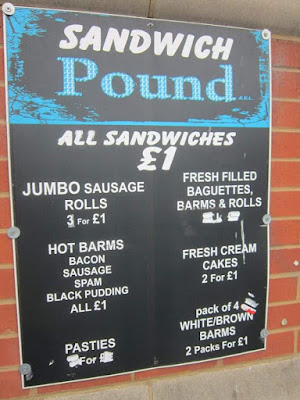What I've read in 2023. As ever, it's an eclectic collection, largely based on films I've seen and then sought out the book or short story that they're based on.
A Laodicean/The Hand of Ethelberta/Desperate Remedies by Thomas Hardy
I completed my reading of Hardy's prose works with three of his minor, and least regarded, novels.
A Laodicean, a novel about the clash between modernity and tradition, has a remarkably similar opening to Franz Kafka's The Castle (a young surveyor walking down a country road at night, lost and looking for the village inn he is to stop at, before unexpectedly coming upon the castle where he has been hired to work).
Silas Marner by George Eliot
Maybe not quite up there with her major novels, but a thought provoking story nonetheless, set in her familiar Midlands countryside.
Tom Jones/Joseph Andrews/Shamela by Henry Fielding
The first two are picaresque novels about young men making their way in the world, and getting into scapes as they travel round the country, and the last is Fielding's spoof of Samuel Richardson's best-selling epistolary novel Pamela.
Pamela by Samuel Richardson/Anti-Pamela by Eliza Haywood
Having read the spoof, I moved on to the original, and then another parody of it.
Main Street by Sinclair Lewis
A novel about the cultural limitations of a small Midwestern town before and during World War I, based on the one where Lewis grew up, with echoes of the small town Minnesota-set Lake Wobegon Days stories that I read as a teenager (there's also another very Kafkaesque scene in it, when a country doctor sets out on a winter night in a horse drawn carriage to visit a dying patient on an outlying farm).
Crabwalk by Günter Grass
The quality of Grass's literary output definitely declined in his final decades, but I enjoyed this 2002 work about the sinking of a Nazi recreation ship packed with refugees by a Soviet submarine in the Baltic towards the end of World War II, mostly because it features characters from his earlier Danzig Trilogy, The Tin Drum , Cat and Mouse and Dog Years, which propelled him to fame.
A River Runs Through It by Norman Maclean
The novella on which the Hollywood film was based, it centres on the relationship between two brothers and their flyfishing father in early twentieth century Montana.
Barchester Towers by Anthony Trollope
I continued my out of sequence reading of Trollope's Barchester Chronicles with this entertaining tale about the political and clerical machinations around the appointment of a new bishop in a West Country cathedral city.
The Machine Stops by E.M. Forster
A 1909 sci-fi short story about a future world whose inhabitants live in isolated pods which is an eerily prescient description of the Zoom age ("the round plate that she held in her hands began to glow. A faint blue light shot across it, darkening to purple, and presently she could see the image of her son, who lived on the other side of the earth, and he could see her.").
Tomorrow by William Faulkner
A short story set in Faulkner's fictional Yokanapatawpha County, like Daphne du Maurier's Don't Look Now this is a good example of how you can turn ten pages of text into a two hour film (in this case, a stark black and white 1972 one starring Robert Duvall).
In the Heat of the Night by John Ball
Like the film, this features a black detective passing through a small Southern town, but there are some major plot differences between the novel and the the screenplay.
Big Fish by Daniel Wallace
A fantastical tale about a larger than life Alabama salesman, later played on film by Albert Finney.
Happy Birthday, Dear Jesus by Frederik Pohl
Another sci-fi short story, from the fifties, about a future society where the Christmas shopping rush starts in September!
The Greatest Gift by Philip Van Doren Stern
Rounding off the reading year, a festive short story which formed the basis of the classic Christmas film It's A Wonderful Life.






